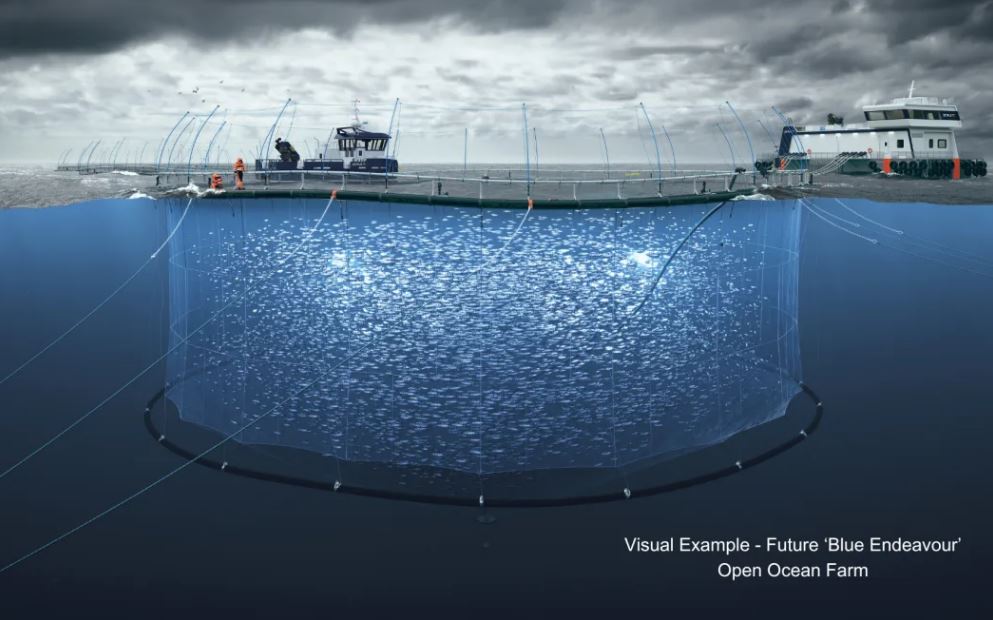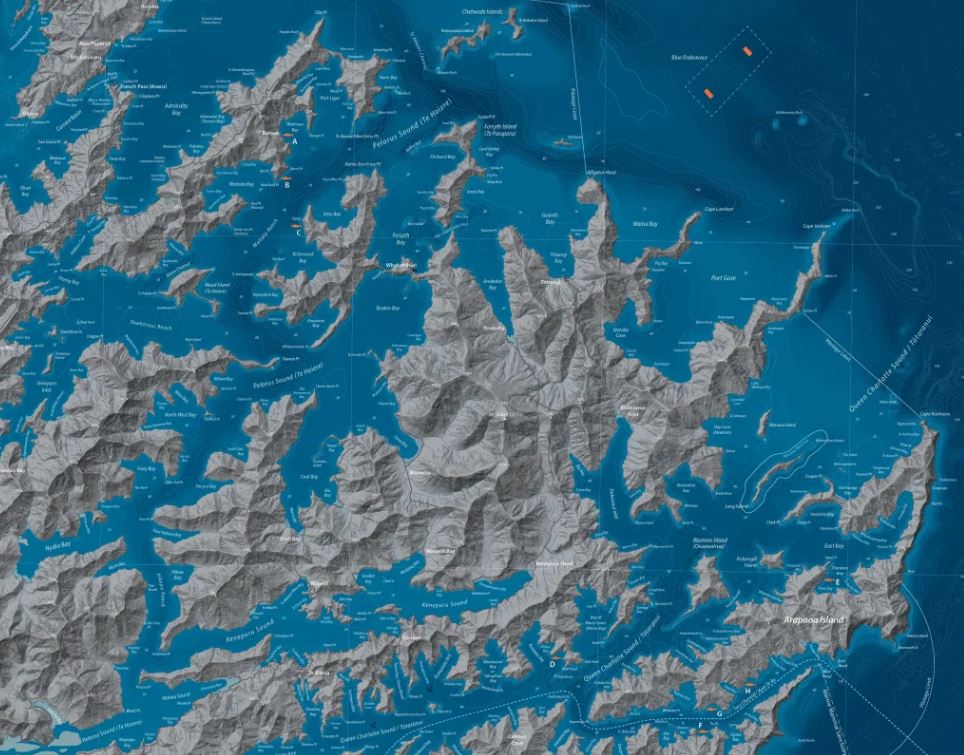
New Zealand King Salmon (NZKS) confirmed the news in a share market announcement on Friday, but construction could still be years away.
It marked the end of a near five-year consent process for the project, known as Blue Endeavour.
The company estimated the project could generate $300 million in new revenue per year.
The Cook Strait farm, which would be 7 kilometres off Cape Lambert in Marlborough, would also mark a world-first in farming the King Salmon species in the open ocean.
NZKS chief executive, Carl Carrington, said the company would take things slowly following the approval.
"From here, we will complete our 18-month programme of rigorous benthic (seabed), seabird and marine mammal monitoring. This will provide a baseline of information, against which we can measure the impacts of a working salmon farm," he said.
"The next step will be a 'proof-of-concept' phase, putting in the trial pens from June 2025. This is when it starts to get exciting from a farming point of view - building a smaller-scale pilot farm so that we can trial new infrastructure while monitoring the welfare of our salmon, to ensure they can thrive."
Carrington said the project required patience.

Its plans have also faced some controversy, with the Department of Conservation and the Wellington-based think tank McGuiness Institute previously appealing the decision to grant NZKS resource consent for the Cook Strait project.
McGuiness Institute chief executive Wendy McGuiness said in December 2022 it was appealing the consent due to concerns over the open ocean farming model and the potential for pollution, the risks it posed to wildlife and reduced access.
"King Salmon basically have a right under this consent to use 1000 hectares [for marine farming] that no one else is allowed to use.
"It's a little bit like giving a farmer free land to pollute and use for 35 years and them not ever paying anything for it."
The same month, DOC said it had lodged an appeal seeking to change conditions on the consent.
"Should those changes be made, DOC has signalled that it does not oppose the granting of the consent of the Blue Endeavour application."
NZKS said at the time that it would enter mediation with DOC and any other interested parties in 2023.
According to a 2021 report prepared for the Ministry for Primary Industries, open ocean farming was a relatively recent method of salmon farming.
The method has been mainly used in Norway, the global leader in Atlantic salmon farming.

When fully operational, the Blue Endeavour farm would have the capacity to produce 10,000 metric tonnes of chinook salmon.
'Win for economy' - Minister
Oceans and Fisheries Minister Shane Jones said the approval was a "significant step" for the aquaculture sector, and a "win for the economy".
"It's going to provide more jobs for the Marlborough region and benefit our economy by providing sustainable kaimoana to the world," he said.
But Jones said the project took "far too long" to receive the necessary approval.
"The coalition government is committed to removing unnecessary barriers to make approval processes for projects such as this quicker and easier and, in doing so, a lot cheaper," he said.
"There are currently too many hurdles causing delays for aquaculture projects, and these delays hurt our economy and the communities that rely on aquaculture," Jones said.













